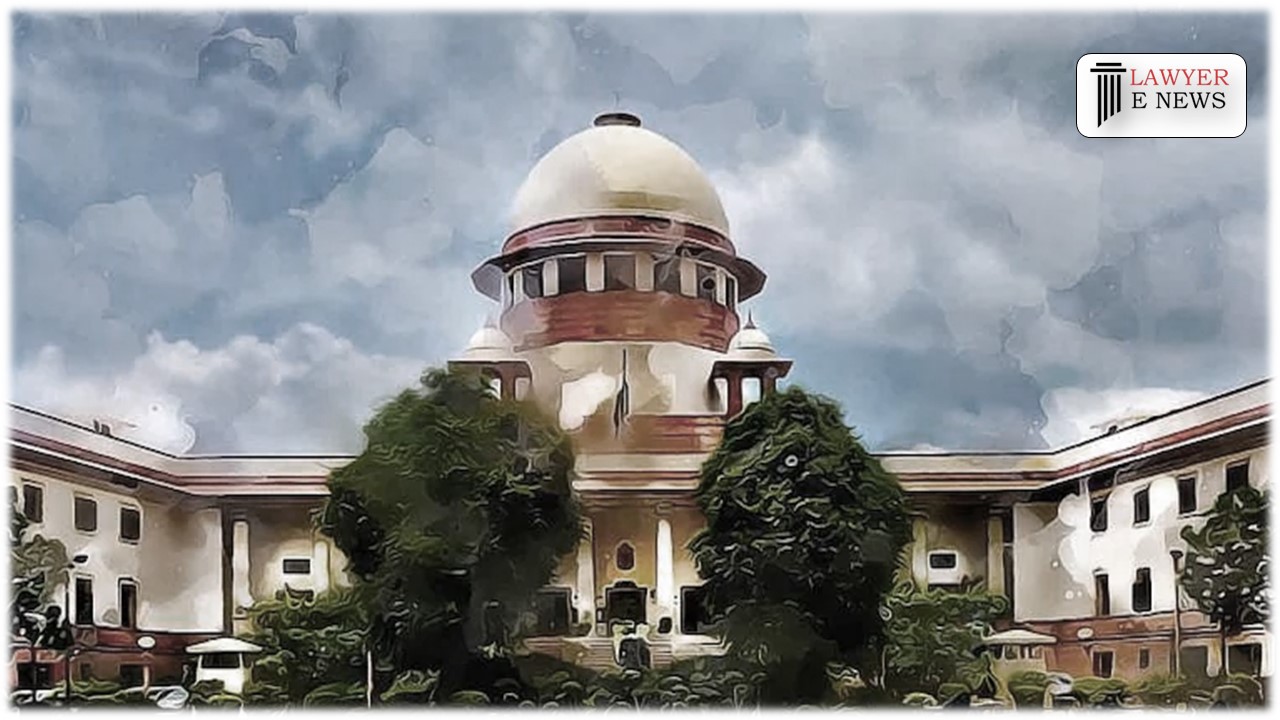-
by sayum
14 February 2026 2:22 PM



The Supreme Court has dismissed the appeal of Surender Singh, a police guard convicted of murder and attempted murder, upholding the life sentence and seven years of rigorous imprisonment imposed by the trial court and affirmed by the High Court. The Court emphasized the implausibility of the defense's claims of self-defense and grave and sudden provocation, noting the overwhelming evidence presented by the prosecution.
The incident occurred on June 30, 2002, at the Mayur Vihar Police Station in Delhi. Surender Singh, while on duty, killed Satish, his first cousin, using his official carbine. The prosecution's case was built on the testimony of eyewitnesses and forensic evidence, which established that the appellant shot the unarmed deceased multiple times in a brazen act of murder within the police station premises.
The Court underscored the reliability of the testimonies provided by the prosecution's witnesses, particularly those present at the scene. The key witness, PW-2, a lady head constable, provided a detailed and consistent account of the events. Despite a delayed cross-examination, her testimony remained unshaken, corroborated by other police personnel present at the station.
"The consistent and credible testimonies of the eyewitnesses leave no room for doubt regarding the guilt of the accused," the bench noted.
Forensic evidence played a pivotal role in substantiating the prosecution's case. The post-mortem report revealed multiple gunshot wounds on the deceased, including entry wounds with blackening indicative of close-range shots. The distribution of injuries corroborated the eyewitness accounts of the appellant continuously firing at the deceased as he attempted to escape.
The defense argued that the deceased had come to the police station intending to kill the appellant, who acted in self-defense. Alternatively, they claimed that the appellant was provoked by the deceased’s illicit relationship with his wife, leading to a sudden loss of self-control.
The Court rejected these defenses, stating, "The plea of self-defense is devoid of any credible evidence. The scenario presented by the defense is implausible, especially considering the unarmed state of the deceased and the nature of the injuries inflicted."
The judgment extensively discussed the principles of self-defense and provocation under Indian law. The Court reiterated that the burden of proof for self-defense lies with the accused, who must present a reasonable and probable version of events. In this case, the defense failed to provide any substantiating evidence.
"Provocation must be grave and sudden, enough to temporarily deprive a reasonable person of self-control. The evidence, however, points to a premeditated act of murder rather than a spontaneous reaction to provocation," the judgment read.
Justice Sudhanshu Dhulia remarked, "The nature of the injuries and the continuous firing at the deceased, even as he attempted to flee, clearly establish a calculated act of murder. The defenses of self-defense and provocation are not only implausible but also unsupported by any credible evidence."
The Supreme Court's dismissal of the appeal reaffirms the conviction and sentences of Surender Singh, emphasizing the gravity of the crime committed within a police station. This judgment underscores the judiciary's commitment to ensuring that the sanctity of law enforcement premises is upheld and that baseless defenses in clear-cut cases of murder are not entertained.
"A murder committed within the sanctity of a police station cannot be excused by baseless defenses. This judgment serves as a stern reminder of the rule of law and the importance of credible evidence in upholding justice," the Court concluded.
Date of Decision: July 3, 2024
Surender Singh v. State (NCT of Delhi)
